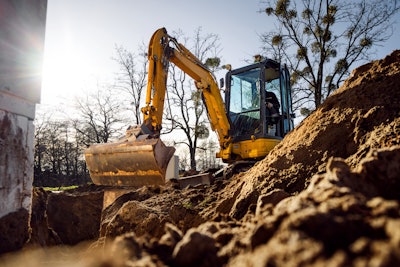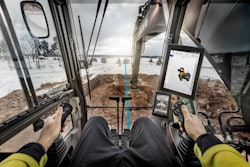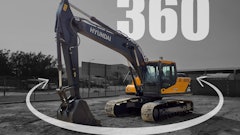
There’s no argument that fleet assets, operators, and managers play a significant part in private and commercial construction operations. Obviously, the construction industry relies heavily on a skilled, dedicated, and motivated workforce to keep projects moving efficiently. Unfortunately, the construction industry faces an unsettling challenge in 2024, with a projected shortage of more than 80,000 qualified operators. Stemming from demanding schedules, strict deadlines, and high-stress levels, this talent shortage has been a significant factor contributing to operator attrition.
In response to this range of challenges, fleet management platforms can be an effective tool to combat operator turnover and improve fleet performance, facilitating communication between management and operators in the field. By keeping everyone in the loop, construction companies can mitigate operational delays and prioritize safety. Construction companies also leverage fleet management tools to address the maintenance needs of vehicles and equipment. In doing so, these companies create better experiences for their operators, which can improve the retention of their most valuable asset—their operators.
Modern Construction Fleets Need Modern Solutions
The demands placed on construction fleets are ever-evolving. While operators continue to grapple with the fundamental challenges of operating a fleet, like vehicle and equipment reliability, asset downtime, job site safety, and informational delays, purpose-built technology has evolved to address those challenges. Construction fleets need solutions that help their distributed team effectively collaborate while on the move. To meet the needs of both construction fleets and employees, these tools should be both secure and easy to use. By leveraging modernized platforms, construction fleets can properly maintain their assets, so downtime doesn’t delay projects and increase their cost of business.
 Connectivity is critical to heavy asset operations, especially construction projects.@photoschmidt - adobe.stock.com
Connectivity is critical to heavy asset operations, especially construction projects.@photoschmidt - adobe.stock.com
Fleet management platforms offer a range of features to address the specific challenges faced by construction fleet operators. Digital inspections and work orders help quickly identify and resolve issues before they result in downtime. Preventive maintenance reminders and fault alerts help fleets stay on top of maintenance and intervene before a code becomes costly. By equipping fleet operators with these platforms, fleets run safer and more efficient operations. This is a key step in creating a supportive environment that allows operators to focus on their core responsibilities while delivering exceptional service to construction sites nationwide.
Connected Construction Operations
Modern fleet management platforms reduce the manual work involved in coordinating construction operations. Open API access, along with native integrations, helps fleets centralize and analyze all of their data in one platform. Collaboration-centric features foster real-time communication with comments and mentions in inspections and work orders that notify the right people about any status changes for an asset. This real-time connectivity streamlines progress monitoring and enhances coordination across construction operations. As a result, construction sites can synchronously share resources and data to streamline processes, minimize costs, and provide up-to-date insights into jobsite activities for improved planning and coordination.
Connectivity is critical to heavy asset operations, especially construction projects. Fleet management platforms, integrated with telematics, offer a lifeline to construction fleet operators and improve workplace safety through real-time fault alerts and sensor data snapshots. These tools empower fleet managers to quickly assess issues and proactively address safety concerns by identifying and addressing faulty vehicles or equipment.
These consolidated platforms reduce friction in communication and asset management, which can promote engagement and higher satisfaction for the construction workforce. Beyond simplifying communications, this investment helps construction companies track and manage their expenses and operational efficiency.
Reducing Burnout with Efficiency
By prioritizing adopting fleet management platforms, construction organizations equip fleet operators with the best technology to manage their work. Investing in technology that simplifies operator tasks underscores the company's dedication to producing better results for the organization and its employees. To reduce the manual administrative burden for operators, construction managers often look first to update their preventive maintenance strategies with modern fleet maintenance.
Fleet maintenance goes beyond vehicle upkeep; it represents an investment in the operator's time, safety, and overall satisfaction. By implementing driver-centric fleet technology, construction firms create a more efficient, transparent, and supportive work environment, fostering higher levels of operator satisfaction and retention.
Operators who frequently encounter fatigue, exhaustion, and heavy workloads can develop feelings of burnout. Addressing frustration and minimizing attrition rates among construction fleet operators necessitates a proactive strategy focused on prevention and efficiency. Fleet platforms can assist by streamlining inspections, identifying issues in real-time to minimize delays, improving communication flow, and delivering prompt maintenance alerts. By leveraging these platforms, construction companies can mitigate stressors that usually contribute to operator dissatisfaction and turnover. This emphasis on preventive measures and operational efficiency enhances the operators’ working experience and strengthens the team experience, developing a culture of loyalty and long-term engagement.
A Happier, More Productive Team
In an attempt to improve operator morale, some fleets offer monetary rewards such as bonuses, commissions, raises, or gift cards to show appreciation. However, investing in construction fleet operator satisfaction goes far beyond monetary compensation. Other avenues to boost morale and productivity within the team include: recognizing and appreciating operators for their hard work, celebrating personal events and milestones, fostering open-door communication, providing career advancement opportunities, organizing team-building activities, and actively seeking feedback are all effective strategies to increase spirits and foster a positive work environment. This can support a virtuous cycle where team members are incentivized for their contributions, which can improve morale, safety, and productivity. Ultimately, by investing in employee experience through a combination of incentives and implementing advanced fleet management software, construction companies can cultivate a happier, more productive team, minimizing turnover and fostering a positive organizational culture centered on mutual respect and collaboration.


















